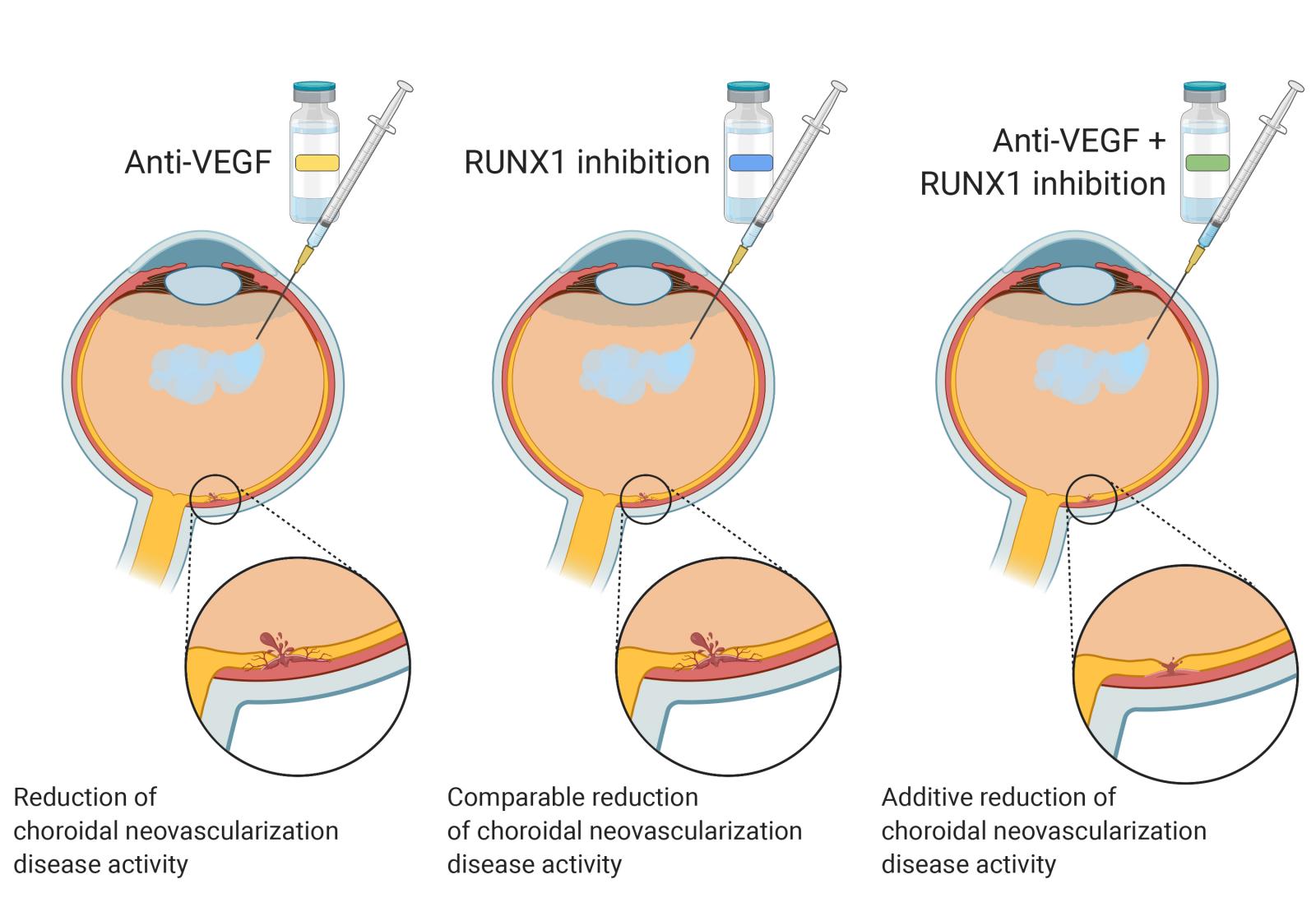
RUNX1 inhibition combined with anti–vascular endothelial growth factor (anti-VEGF) therapy achieves better control of experimental choroidal neovascularization activity compared to monotherapy. Image credit: The American Journal of Pathology
Runt-related transcription factor 1 (RUNX1) has been linked to retinal neovascularization and the development of abnormal blood vessels, which result in vision loss in diabetic retinopathy. Now, scientists have found that RUNX1 inhibition presents a new therapeutic approach in the treatment of age-related macular degeneration (AMD), which is the leading cause of blindness in the elderly worldwide. Their results are reported in The American Journal of Pathology, published by Elsevier.
“RUNX1 inhibitors hold significant promise to complement or replace anti-VEGF therapies for patients in which anti-VEGF therapy is no longer effective, and with the potential to be administered topically it could be transformative in the field,” suggests co-lead investigator Joseph F. Arboleda-Velasquez, MD, PhD, Assistant Scientist, Schepens Eye Research Institute of Mass Eye and Ear, and Assistant Professor of Ophthalmology, Harvard Medical School, Boston, MA, USA.